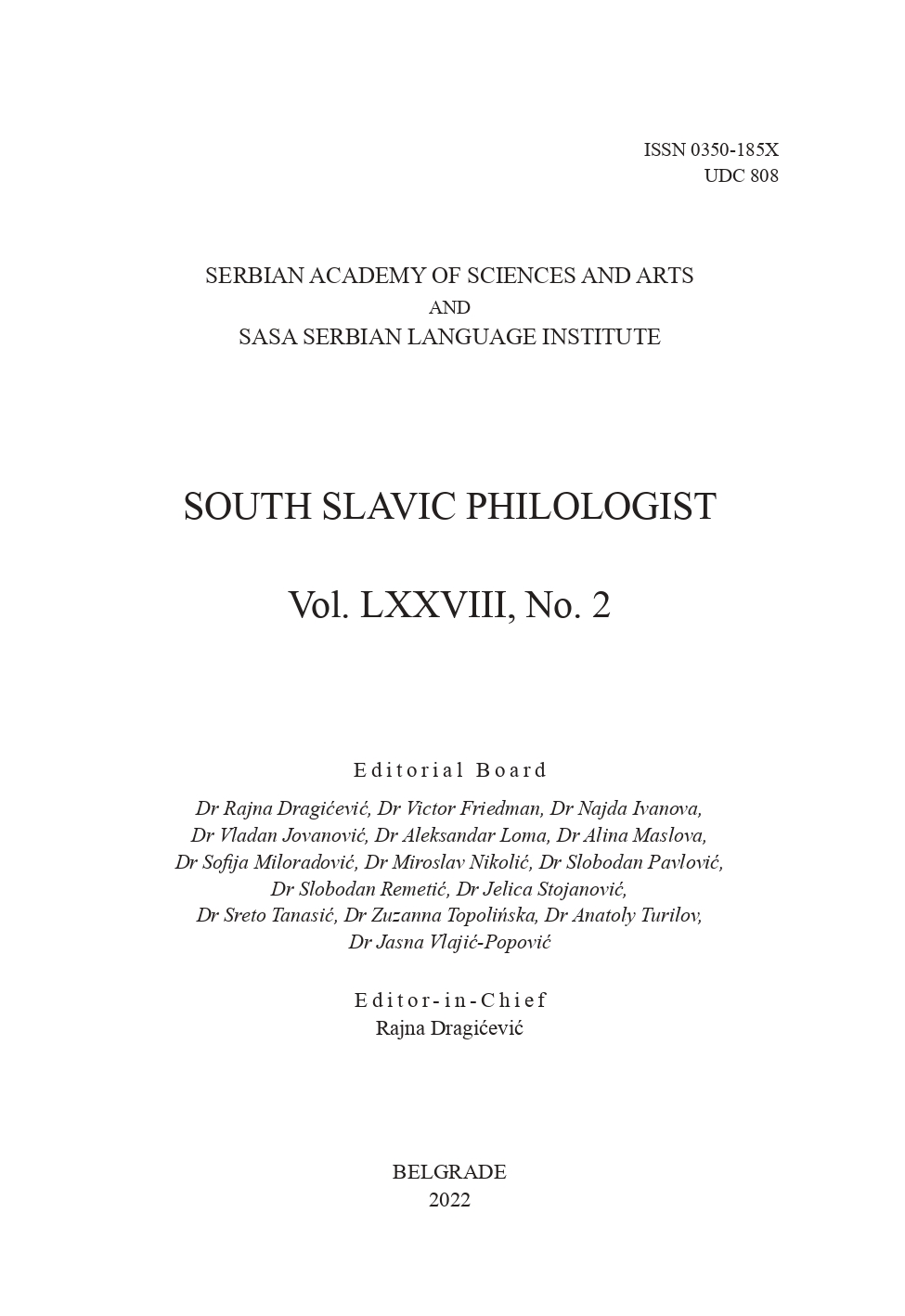ЦРКВЕНОСЛОВЕНСКИ ТВОРБЕНИ ЕЛЕМЕНТИ У СРПСКИМ НАРОДНИМ ГОВОРИМА (СУФИКС -ИЈЕ)
CHURCH SLAVONIC WORD-FORMATION ELEMENTS IN SERBIAN VERNACULARS (THE SUFFIX -IJE)
Author(s): Marta BjeletićSubject(s): Morphology, Lexis, Historical Linguistics
Published by: Институт за српски језик Српске академије наука и уметности
Keywords: Serbian language; vernaculars; neuter gender nouns; word-formation; Church Slavonic suffix -ije
Summary/Abstract: This paper deals with Serbian dialectal neuter gender nouns with the suffix -ije. The focus is not on the Church Slavonic borrowings, but on the domestic nouns formed according to a Church Slavonic word-formation model. They can be derived from verbs of various types (perfect and imperfect, transitive and intransitive, reflexive and non-reflexive), and in most cases they do not have Church Slavonic counterparts. These nouns are classified into several semantic groups: terms for meteorological phaenomena (ogrijanije, osvitanije, pometenije), nomina actionis (rktanije), terms for realia (sklepanije). However, most of them denote abstract concepts related to moral, existential and emotional spheres (preobraženije, skapanije, pośečenije). The nouns of this word-formation type are often used in collocations (u ogrijanije sunčano, puklo mu je skapanije) and in specific contexts, such as oaths and curses (onoga mi ogrejanija, na usječenije mu bilo). The special function of considered nouns is to emphasize expressiveness. Thanks to the suffix -ije, they are perceived as marked and used when the meaning of their unmarked counterparts has to be intensified.
Journal: Јужнословенски филолог
- Issue Year: 78/2022
- Issue No: 2
- Page Range: 241-253
- Page Count: 13
- Language: Serbian

